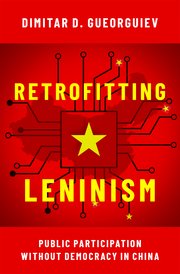Beijing and Moscow advanced a vision of a new world order Wednesday as Russian Foreign Minister Sergey Lavrov made his first visit to key ally China since his country launched its invasion of Ukraine, CBS News reports. Moscow’s top diplomat landed in the eastern city of Huangshan early Wednesday for a series of meetings about the future of Afghanistan, but Russia’s bloody assault on its neighbor was likely to loom large over proceedings.
China’s “whole-of-nation” approach has produced a surveillance apparatus few dictatorships can match, the Hoover Institution adds. The country’s rapid economic growth also allows the Communist Party to upgrade the technological capabilities of this apparatus and strengthen its political monopoly. Featuring NED board member Minxin Pei (Senior Fellow, Claremont-McKenna College). Followed by a conversation with Larry Diamond (Senior Fellow, Hoover Institution, and Mosbacher Senior Fellow in Global Democracy at FSI) and Glenn Tiffert (Research Fellow, Hoover Institution). Tuesday, April 12, 2022, from 2:00 pm – 3:00 pm PT, in partnership with CDDRL and the China Program at APARC. REGISTER

The key to the CCP’s staying power, Syracuse University’s Dimitar Gueorguiev argues (above), is its ability to integrate authoritarian control and mass inclusion—an organizational task now facilitated by technology. Relying on a series of original opinion polls, public records, media reporting, and interviews he shows how public input feeds into political oversight and policy planning that exceeds the expectations of a typical top-down organization.
The marriage between state control and social inclusion is at risk, however, with signs of political apathy and public mistrust pointing to an increasingly controlling yet disconnected surveillance state, he tells Susan Shirk, Chair of the 21st Century China Center at UC San Diego School of Global Policy and Strategy.







